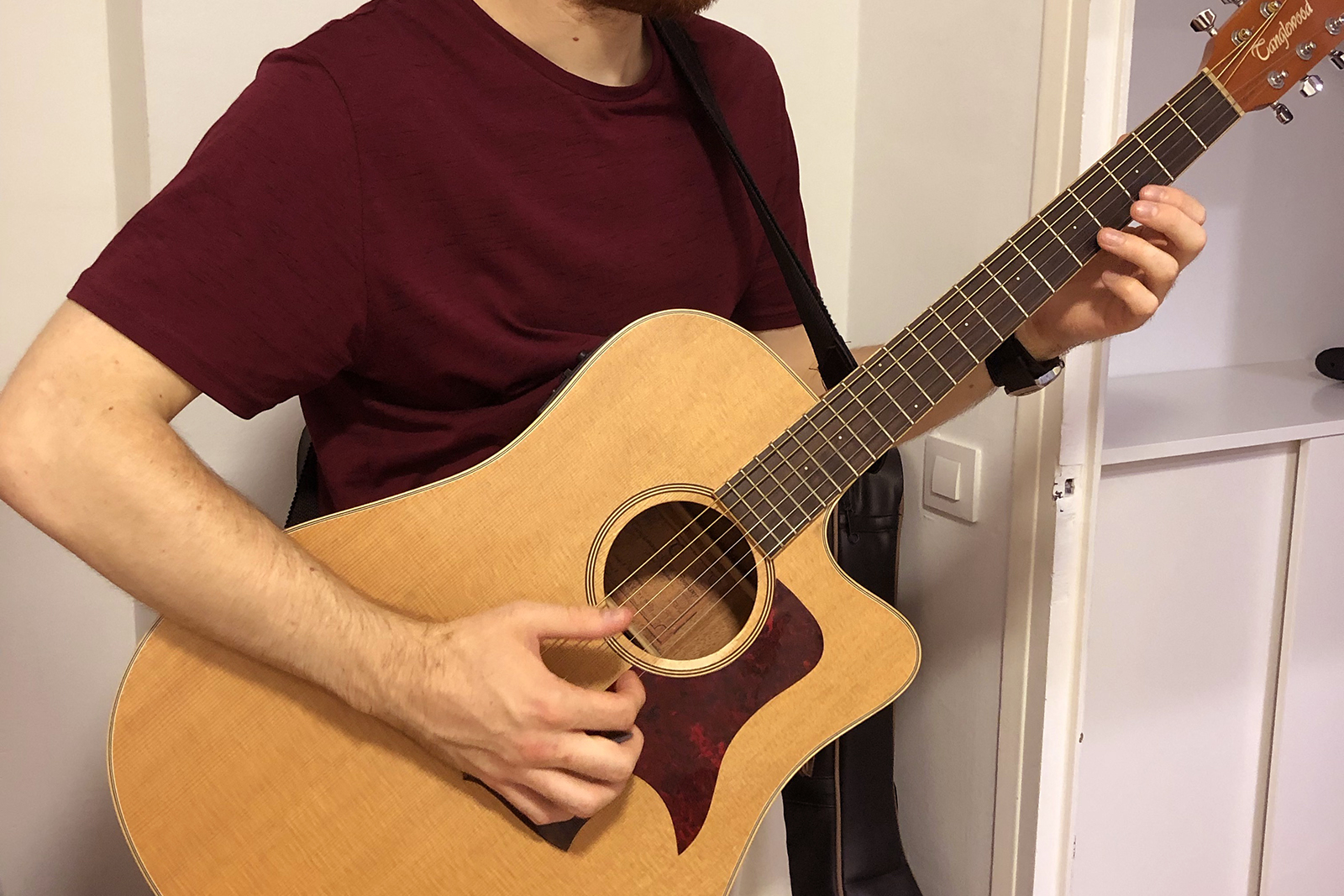Music is one of the things that unites us. A song can be one of the special bonds we have with our partner; it can send a room of strangers dancing; it can start a crowd of thousands singing together. Each culture around the world has its own sounds and rhythms, but the concept of playing beats and notes so others can listen is universal. While most of us enjoy listening to music, those of us who actually play are in shorter supply.
Learning to play an instrument is a challenge, to be sure. But it is worth it! Take it from someone who has been strumming away on a guitar for the last decade or so. There are many advantages that come with playing, and these are not limited to the few musicians who manage to turn professional. Far more than simply having a skill, playing an instrument has benefits to the health on physical, mental, and emotional levels.
So, what can playing a musical instrument do for you?

Physical benefits of playing an instrument
Playing an instrument is very much a physical activity – and this is true for some instruments more than others. As such, your body can experience a number of physical changes as a result. These benefits include:
- Exercise – whether you’re a rock star running around a stadium stage or at home plucking a harp, playing an instrument uses and strengthens certain muscles. Some instruments use more muscles than others. Playing the drums, for instance, can be like a full-body workout with cardio to boot. It gets the heart rate up and the blood flowing.
- Strengthening the lungs – musicians who play wind instruments (e.g. flutes, harmonicas and saxophones) and singers all have to breathe deeply and learn to control their breathing. The respiratory system becomes stronger and healthier as a result.
- Fine hearing – another physical change experienced by many musicians is an increased ability to pick out specific sounds in a noisy environment.
- Stress relief – while stress is primarily a mental problem, it has knock-on effects on physical health.
- Improves motor skills – the majority of musical instruments require dexterity, flexibility, and nuance to play well. Movement is key. Learning the right way to move your fingers over a guitar or moving your feet and hands in unison to play a grand piano can greatly strengthen and improve the ability to use and manipulate your body. This can be especially useful for children with poor motor skills and people undergoing physical rehabilitation (e.g. after an accident or a stroke).

Music and the brain
Playing music can also have several interesting effects on the brain. While there is still much to learn about this, it appears that musicians’ brains create new connections and pathways not found in the brains of people who don’t play. This may be the reason why musicians tend to perform better on certain cognitive tests. Playing an instrument can even help people with certain mental health conditions. Mental benefits of playing an instrument include:
- Increased reaction speed
- Improved memory – perhaps it comes from having to remember a setlist of songs, or perhaps as a side-effect of the different pathways in the brain, but musicians seem to have an above-average memory.
- Increased co-ordination – as you might imagine, making your hands and fingers work together in rhythm requires co-ordinated movements. This ability seems to translate to other tasks too.
- Better concentration – playing an instrument requires a certain level of focus, but also provides plenty of stimuli. This may be helpful for people with ADHD (attention deficit hyperactive disorder).
- Stress relief – I can attest to this one. Having played guitar since being a teenager, it is amazing how much an hour spent twiddling away on a six-string can help you to unwind.
- Combatting cognitive decline and dementia – one interesting thing about music is its implications for memory and cognitive decline. Research suggests that people with Alzheimers disease are able to remember music and information associated with it better than other things. This is because music activates parts of the brain that are less affected by the condition.
- Keeps the mind sharp – it has also been suggested that people who play may lower their own risk of cognitive decline due to the increased brain activity and different neurological pathways associated with the discipline.

Emotional benefits
Emotion is at the heart of music. Singers, songwriters, and musicians pour their hearts and souls into the music they write and perform, and it is no coincidence that it is often the songs with the most meaning attached to them that people identify most with and will listen to again and again. Playing an instrument can prove a valuable emotional outlet. This, in turn, can benefit your health and happiness.
- Self-expression – it is essential for our mental health and emotional wellbeing that we can express our thoughts and feelings and be ourselves. However, this isn’t always the easiest thing to do in our daily lives. Our mental health, personal situations, and our own personalities can make it difficult to simply say what we’re feeling. An instrument can offer a way to express ourselves through music.
- Sense of achievement – playing an instrument comes with a wonderful sense of having accomplished something. This feeling is important for our emotional wellbeing. For some, it will come from performing in front of people; for others, simply mastering a new song will feel like a victory.
- New friends – playing in a band or orchestra or simply taking lessons open up the doors to a new social circle. Friends are important for emotional wellbeing, while working together to create music fosters important bonds and teaches new social skills.
- Regulates mood – for those of us whose emotions don’t always follow a stable course, there is good news! Playing music can help to keep us on an even keel, with its therapeutic value helping us to deal with what we are feeling, be it anger, frustration, anxiety, or depression.

Music therapy
The sum of all of this is, well, therapy. Music provides therapy.
Many people find music therapeutic, and this is perhaps most true when we play it ourselves. It can help us relax, easing stress and anxiety, and being able to express ourselves through playing can be the therapy we need to overcome the problems facing us.
Moreover, this is recognised by the world of medicine. Far from being a new-age alternative with dubious scientific backing, music therapy is an evidence-based practice with indications for psychological disorders, physical rehabilitation, mood disorders, and patients with special needs. Studies support its efficacy in treating conditions as varied as schizophrenia, Parkinson’s disease, and depression. Research is ongoing into its use in communicating with dementia patients, and there is at least some evidence that it can slow the rate of cognitive decline. There is certainly more to learn. However, for now, it seems that music (and playing it) has a place in healthcare.
It turns out the benefits of playing an instrument are many and you don’t have to be the next Jimi Hendrix to feel them. The only question left to answer is: what are you waiting for? Pick up a guitar! Call a piano tutor! Pick up a tin whistle for a few quid and toot away. You won’t know the good it’ll do you till you start on the path of the musician.









